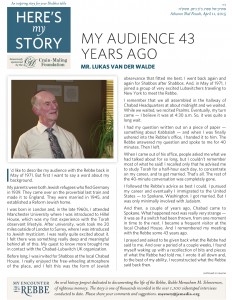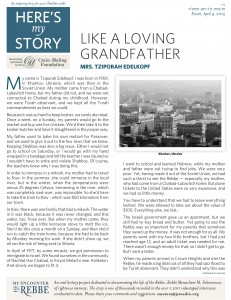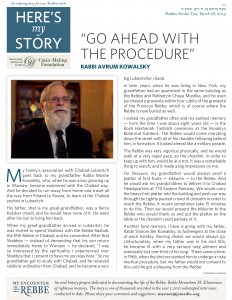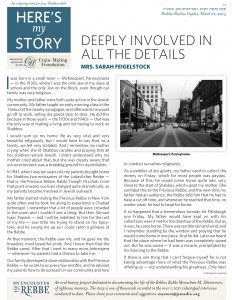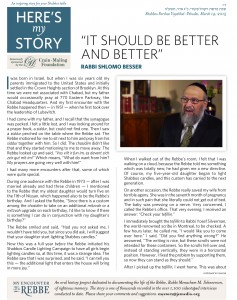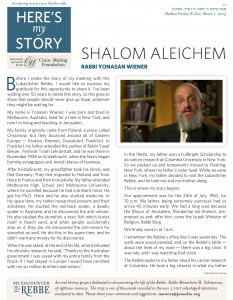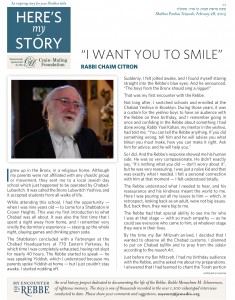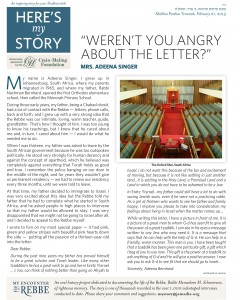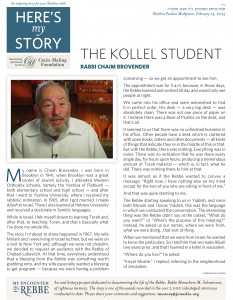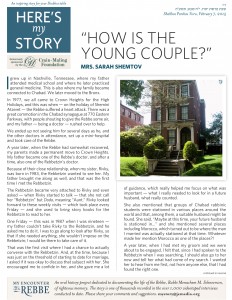HMS: My audience 43 years ago
I’d like to describe my audience with the Rebbe back in May of 1971. But first I want to say a word about my background.
My parents were both Jewish refugees who fled Germany in 1939. They came over on the proverbial last train and made it to England. They were married in 1945, and established a Reform Jewish home.
I was born in London and, in the late 1960s, I attended Manchester University where I was introduced to Hillel House, which was my first experience with the Torah observant lifestyle. After university, work took me 20 miles outside of London to Surrey, where I was introduced to Jewish mysticism. I was really quite excited about it. I felt there was something really deep and meaningful behind all of this. My quest to know more brought me in contact with the Chabad-Lubavitch UK organization.
Before long, I was invited for Shabbos at the local Chabad House. I really enjoyed the free-wheeling atmosphere of the place, and I felt this was the form of Jewish observance that fitted me best. I went back again and again for Shabbos after Shabbos. And, in May of 1971, I joined a group of very excited Lubavitchers traveling to New York to meet the Rebbe.
I remember that we all assembled in the hallway of Chabad Headquarters at about midnight and we waited. While we waited, we recited Psalms. Eventually, my turn came – I believe it was at 4:30 a.m. So, it was quite a long wait.
I had my question written out on a piece of paper – something about Kabbalah – and when I was finally ushered into the Rebbe’s office, I handed it to him. The Rebbe answered my question and spoke to me for 40 minutes. Then I left. (more…)


